Meet the team
Oya Beyan is Professor for Medical Informatics at the Medical Faculty of University of Cologne and is Co-Director of the Medical Data Integration Center (MeDIC) at the University Hospital of Cologne. Her research is related to data reusability and FAIR data management, distributed analytics on sensitive data, and data-driven transformation in medicine. Her area of expertise is in semantic web technologies and their application in healthcare and life sciences with an emphasis on clinical decision support, patient empowerment, research data management, and ethical and social challenges of data.
Prof. Beyan actively contributes to national and international initiatives to enable the adoption of FAIR principles, including the GO FAIR initiative, and develops tools and infrastructures supporting FAIR data. She also heads the Institute for Medical Informatics at the University of Cologne (UK) and is also head of the FAIR Data Group at the Fraunhofer Institute for Applied Information Technology (FIT).
Prof. Beyan is co-initiator of the GO FAIR Implementation Network Personal Health Train (PHT) and at the time that she was affiliated with RWTH Aachen she has implemented the concept of PHT as part of the SMITH consortium of MII. As Germany's representative to the European Open Science Cloud (EOSC), she published on FAIR metrics for EOSC.
She is member of the board of the Research Data Alliance (RDA) Germany and involved in the leadership of the RDA working group on reproducible health data services.
Prof. Beyan is a partner in the NFDI4DataScience and the NFDI4Health consortia. At the University of Cologne, Prof. Beyan takes a leading role in the MII consortium HIGHMED with her professorship and as co-leader of the Medical Data Integration Center (MeDIC).
Her research interests and expertise lies in the area of Data Driven Medicine, Research and Registry Data Repositories, Health Care Standards and Knowledge Graphs for Biomedicine. Her background research has been with Semantic Web Technologies and FAIR Data management: FAIR Data Workflows and FAIR Data Sharing and is having a leading research presence in the area of Distributed Data Analytics, Machine Learning in Biomedical Data and Knowledge Representation.
-
Prof. Oya Beyan Head of the Institute for Biomedical Informatics
![[This content is not available in "Englisch" yet] [This content is not available in "Englisch" yet]](/sites/medizininformatik/_processed_/1/3/csm_20230823132951_IMG_2622-01_2507071136.jpeg)
-
oya.beyan
uni-koeln.de
-
Dr. Adamantios Koumpis Forschungs- & Lehrbeauftragter
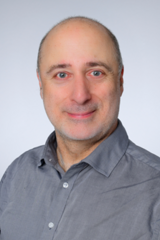
Erfahrung in Forschungsplanung und -management in den Bereichen: E-Health und E-Government, E-Learning, Accessibility und Assisted Living, Mensch-Computer- und Mensch-Roboter-Interaktion. Umfangreiche Lehrerfahrung in verschiedenen Hochschulen, Fachrichtungen und Disziplinen (Wirtschaft, Technik, Wissenschaft) auf Unter-, Graduierten- und Postgraduiertenebene
-
Nicola Dahlberg Assistenz des Institutsleitung
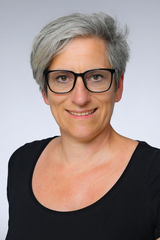
- Phone
- +490221 478-82912
-
nicola.dahlberg
uk-koeln.de
- Room
- 1.008
- Building
- Gebäude 705
- Address
-
Besucher Adresse
Zülpicher Str. 56-58
50674 Köln
- Website
- Website
- Contact via E-Mail
Nicola Dahlberg erwarb ihren staatl. geprüften Betriebswirt in einem 4 jährigen Abendstudium, in dieser Zeit baute Sie eine neugegründete Arzt-Praxis mit Din Zertifizierung 9001 aus. Nach Ihrer Elternzeit, kam Frau Dahlberg an die Uniklinik Köln, wo Sie nun seit mehr als 17 Jahren beschäftigt ist. Vor Ihrer Zeit in der Personalabteilung, hat Sie für das Institut für Medizinsoziologie, Versorgungsforschung und Rehabilitationswissenschaft 13 Jahre lang gearbeitet. Es handelt sich hier um eine gemeinsame wissenschaftliche Einrichtung der Humanwissenschaftlichen Fakultät und der Medizinischen Fakultät der Universität zu Köln. Ihre erworbenen Kenntnisse kann Frau Dahlberg nun in den Aufbau unseres neugegründeten Institut einbringen. Persönlich ist Sie eine ruhige und zugängliche Person, die gerne konzentriert, lösungsorientiert Ihrer Arbeit nach geht, aber nie das Team vergisst. Privat bereist Sie gerne fremde Länder und liebt die Natur.
-
Dr. Dr. rer. medic. Ekaterina Kutafina Forschungsleiterin für datengesteuerte Medizin

Ihr Fachgebiet ist die Entwicklung kompletter computergestützter Pfade für die datenorientierte medizinische Forschung. Sie organisiert Datenströme in interdisziplinären Teams, übersetzt medizinische Fragen in rechnerische Begriffe und erstellt mathematische Modelle, einschließlich KI-basierter Entscheidungssysteme.
Seit vielen Jahren beschäftigt sie sich mit der Analyse von Daten aus medizinischen Sensoren, einschließlich Wearables, in den Bereichen Neurologie, Psychiatrie und Physiologie. Insbesondere hat sie sich mit Studien zu Epilepsie und neuropathischen Schmerzen beschäftigt.
Ihre Aufgabe im BI-K ist es, die strategische Forschungsrichtung der datengesteuerten Medizin zu leiten. Sie bringt ihre Erfahrung ein, um medizinische Forschungsprozesse zu ermöglichen, insbesondere durch eine stärkere Betonung der FAIR-Datenintegration für die interdisziplinäre Forschung und die Optimierung der Datenflüsse.
-
Maria Christoforaki Wissenschaftliche Mitarbeiterin
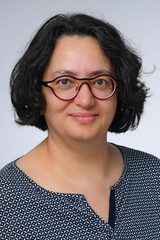
Maria Christoforaki studied Computer Science at the Department of Computer Science, University of Crete, Greece and holds an MSc degree in Information Systems and Software Engineering from the same Institution. Since August 2020 she works for the Institute for Medical Informatics at the Uni Klinik Köln. Her main areas of expertise are AI Ethics, semantic data modelling and digital humanities.
Additionally, at the time I am working for the FAIR-DS BMBF project in order to compile a. ELSA (Ethical, Legal and Societal Aspects) curriculum for data scientists.
-
Julia Gehrmann Doktorandin und Wissenschaftliche Mitarbeiterin
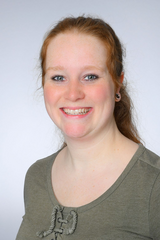
-
julia.gehrmann1
uk-koeln.de
Julia Gehrmann studied Computer Science with Biology as a minor subject at RWTH Aachen University since 2016. During her studies she set a special focus on Data Science and Machine Learning. From 2018 to 2021 she gathered practical experience as a student research assistant in Bioinformatics at the Institute for Computational Genomics of Uniklinik Aachen. Currently, she writes her Master Thesis about creating an adaptable data access and integration workflow for medical data science. Furthermore, I am involved in the Cancer of Unknown Primary (CUP) use case of the Center for integrated Oncology (CIO). About the other CIO use cases (lung and CLL) I have basic knowledge because I take part in most meetings about them but they are still in the planning phase (no data analysis needed to be done yet).
-
Feifei Li Doktorandin und Wissenschaftliche Mitarbeiterin
![[This content is not available in "Englisch" yet] [This content is not available in "Englisch" yet]](/sites/medizininformatik/_processed_/a/5/csm_Feifei_Li_9481b6c763.png)
-
feifei.li
uk-koeln.de
Feifei Li obtained a bachelor’s degree in Automotive Engineering in Tsinghua University, Beijing, China. She studied Automotive Electronics master’s degree at Tongji University and an Industrial engineering master’s degree at the University of Pittsburgh. She worked as an industrial engineer in Pittsburgh Veteran Affairs Healthcare Center for healthcare process improvement. At present, she is pursuing her doctoral study in the information management research area in mechanical engineering. She has plenty of project experience in data analysis and information management, UI design, operation research, simulation. Her current research interests are machine learning applications such as domain generalization and computer vision segmentation.
-
Mehrshad Jaberansary Wissenschaftliche Mitarbeiter
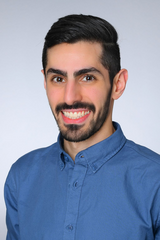
Mehrshad Jaberansary gained his Bachelor's degree in computer science from Amirkabir University of Technology, Tehran, Iran. After working in the aviation industry for three years as a software developer, he decided to pursue his master's degree in data science at RWTH Aachen. During his study, he became involved in distributed computing and worked with an R&D team on a distributed analytics infrastructure called PADME under Professor Beyan's supervision. He is currently doing his master's thesis on Vertical Federated Learning. Furthermore, he is working for the Institute for Medical Informatics at the Uni Klinik Köln, focusing on the FAIR-Data Spaces BMBF project.
-
Mayra Elwes Doktorandin und Wissenschaftliche Mitarbeiterin
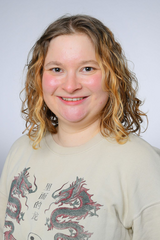
-
mayra.elwes
uk-koeln.de
Mayra Elwes kam 2024 als Doktorandin an das Institut für Biomedizinische Informatik. Sie erwarb einen Master- und einen Bachelor-Abschluss in Informatik an der RWTH Aachen. Bevor sie dem Institut beitrat, sammelte sie Erfahrungen in der Analyse von Biosignalen und Interoperabilität im medizinischen Bereich. Ihr Schwerpunkt liegt auf der Nutzung multimodaler Sensordaten für die Patientenversorgung und der Ermöglichung eines FAIRen Datenaustauschs im Bereich der medizinischen Forschung.
-
Fu Sung Kim Tang Wissenschaftlicher Mitarbeiter

- Phone
- +49 221-478-
-
fu-sung.tang
uk-koeln.de
- Room
- 1.010
Kim Tangs Fachgebiet in seiner aktuellen Promotion ist die Nutzung von biomedizinischen Textdaten mittels natürlicher Sprachverarbeitung und künstlicher Intelligenz für datengetriebene Medizinanwendungen. Während seines bisherigen akademischen Werdegangs an der RWTH Aachen konzentrierte er sich auf KI im Rahmen der Erklärbarkeit und des verteilten Lernens. Durch zwei Auslandssemester an der Kwantlen Polytechnic University in Vancouver und an der National Chiao Tung University in Hsinchu erhielt er Einblicke in internationale Forschung sowie der KI-gestützten Bildverarbeitung und des Information Retrieval.
Seit Januar 2025 ist er am BI-K mitverantwortlich für die Softwareentwicklung und Forschungsrichtung des verteilten Lernens im Rahmen des PrivateAIM und BETTER Projekts.
-
Mostafa Kamal Doktorand und Wissenschaftliche Mitarbeiter
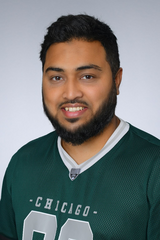
-
mostafa.kamal
uk-koeln.de
Md. Mostafa Kamal studied Computer Science and Engineering from Khulna University of Engineering & Technology and holds a Master degree in Information Technology from University of Dhaka. He has been serving the IT industry for more than 7 years with different multinational organizations. He primarily focuses on digging into complex data for producing insightful analytics. For the last three years, he has been working for some European companies as a Data Analysis and Visualization expert. He pioneered the use of real-time dashboards for application data to be used by the management to take crucial decisions with a high degree of accuracy, resulting in the avoidance of major hiccups in the production environments several times. Since January 2022 he works for the Institute for Medical Informatics at the Uniklinik Köln.
On a personal level, he is detail-oriented, organized, and precise in his work. Along with a knack for clear and illuminating visualizations, he has strong communication skills. He is comfortable on his own crunching the data, but really enjoys being part of a motivated team of smart people.
-
Oussama Zoubia Wissenschaftliche Mitarbeiter
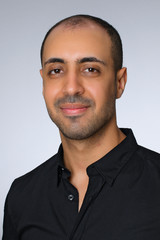
-
oussama.zoubia
uk-koeln.de
Oussama holds a Master's degree in Artificial Intelligence and Multimedia from the University of Batna 2 in Algeria, where he specialized in Computer Vision and graduated in 2020. He is currently deepening his knowledge in this field with a second Master's degree in Data Analysis in Hildesheim. With a solid background in software engineering and data science, Oussama has worked on Fair Data Spaces and Fair Digital Objects. Since April 2023, he has been employed as a research assistant at the University Hospital of Cologne, where he brings his skills and experience to the field of data-driven research.
-
Ahmad Dayeh Doktorand und Wissenschaftlicher Mitarbeiter
-
ahmad.abu-dayeh
uk-koeln.de
-
PD Dr. rer. nat. Susanne Neufang
-
susanne.neufang
uk-koeln.de
-
Dr. Zeyd Boukhers Wissenschaftliche Mitarbeiter
-
zeyd.boukhers
uk-koeln.de
Mitarbeiter beginnt am 01.08.2024 - Beschreibung folgt -
-
Bhanu Prasanna Koppolu Wissenschaftliche Hilfskraft
-
bhanu.koppolu
uk-koeln.de
-
Maria Beyer Doktorandin und studentische Hilfskraft
![[This content is not available in "Englisch" yet] [This content is not available in "Englisch" yet]](/sites/medizininformatik/_processed_/2/7/csm_Maria_Beyer_192e649e63.png)
-
maria.beyer1
uk-koeln.de
-
Lars Quakulinski Wissenschaftliche Hilfskraft
-
lars.quakulinski
uk-koeln.de
-
Hannes Oellerich Studentische Hilfskraft
-
hannes.oellerich
uk-koeln.de
-
Seyedehmotahare Mousavi Studentische Hilfskraft
-
Sarah-Denise Vilayil Studentische Hilfskraft
-
Adam Graefe Doktorand

-
adam.graefe
uk-koeln.de
-
Oliver Diekmeier Doktorand
-
oliver.diekmeier
uk-koeln.de
-
Yuanbin Wang Doktorand
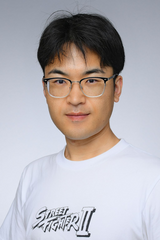
-
yuanbin.wang1
uk-koeln.de
Yuanbin Wang received his first bachelor's degree in mechanical engineering from Southwest Jiaotong University in Chengdu, China. He worked as an engineer in the research and development center of FAW Group in Changchun, China. He completed his first master's degree in automation engineering at RWTH Aachen University, Germany. During his studies, he also applied for his second bachelor's degree in computer science and studied it at the same time. He has project experience in the areas of system simulation, model predictive control and computer vision-based pose estimation.
His areas of interest are the application development of robots in the medical and nursing field, safety through machine learning and human-robot interaction.